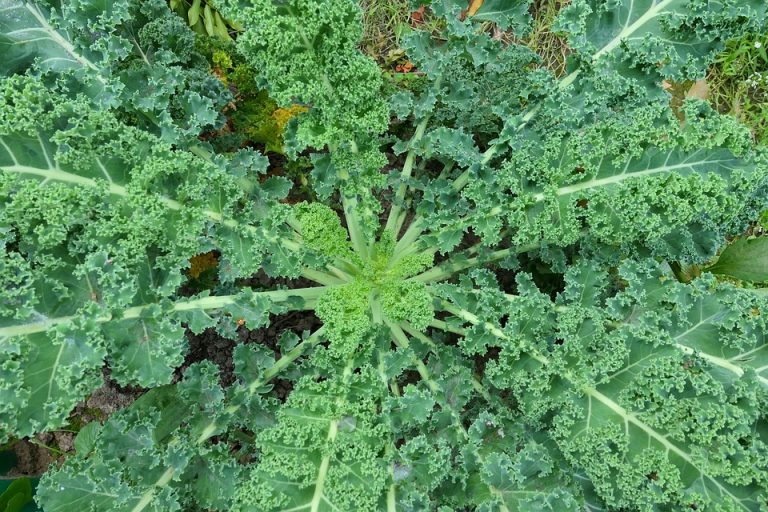5 Reasons Pears Boost Bone Strength You Need to Know
Have you ever found yourself eyeing the fruit basket and wondering which fruits offer the most health benefits? Among all that natural goodness, pears don’t always get the attention they deserve. With a crisp texture and sweet flavor, they are not only delightful but also surprisingly beneficial for your bone health. Here’s why including pears in your diet might be one of the smartest moves you make for your bones.
Contents
Pears and Bone Strength: A Hidden Connection
Understanding how food affects bone health is crucial, especially as we age. Bones undergo a continuous process of remodeling, and various nutrients play key roles in maintaining their strength and density. While many people might reach for dairy or leafy greens when thinking about bone health, pears can also contribute significantly in ways you might not expect.
1. Rich in Vitamin K
One of the standout features of pears is their vitamin K content. This nutrient is vital for bone health because it plays a crucial role in helping to maintain bone density. Vitamin K works by assisting with the synthesis of osteocalcin, a protein that binds calcium to the bone matrix, which is essential for bone strength.
A study published in the American Journal of Clinical Nutrition indicates that higher vitamin K intake is associated with greater bone mineral density and reduced fracture risk in older adults (Zhang et al., 2021)[1]. Including pears as a regular part of your diet can help you get closer to the recommended daily intake of vitamin K, especially when complemented by other vitamin K-rich foods.
2. High Fiber Content for Gut Health
Pears are an excellent source of dietary fiber, particularly in the skin. The role of diet beyond direct nutrients can be overlooked; however, gut health is increasingly recognized as vital for overall health, including bone health. The microbiome in our gut plays a significant role in nutrient absorption and metabolism.
Research shows that a healthy gut can improve the absorption of calcium and other minerals necessary for bone strength. A study conducted by Bäuerl et al. (2020) suggests that dietary fiber, like that found in pears, benefits gut bacteria and subsequently enhances calcium absorption (Bäuerl et al., 2020)[2]. Hence, enjoying pears can indirectly support your bone health by fostering a robust digestive tract.
3. Antioxidant Properties
Pears contain a variety of antioxidant compounds, including flavonoids and vitamin C, which can combat oxidative stress in the body. Oxidative stress is known to weaken bones and lead to a higher risk of osteoporosis. By neutralizing free radicals, the antioxidants in pears help reduce inflammation and preserve bone integrity.
For instance, a study in the Journal of Agricultural and Food Chemistry highlighted that the antioxidants found in pears not only protect cells but also contribute positively to bone health by mitigating inflammation-related damage (Azzini et al., 2020)[3]. Including antioxidant-rich foods like pears in your diet could be a delicious way to invest in long-term bone strength.
4. Source of Magnesium and Other Minerals
In addition to vitamins, pears contain essential minerals such as magnesium, which plays a pivotal role in bone metabolism. Magnesium is crucial for converting vitamin D into its active form, which enhances calcium absorption. Without adequate magnesium levels, bones may become fragile due to insufficient calcium.
According to research published in Nutrients, magnesium contributes to bone mineral density, and a deficiency can lead to increased fracture risk (Rude & Gruber, 2023)[4]. Although pears alone may not provide all the magnesium you need, they can be a part of a broader diet that supports your mineral intake for stronger bones.
5. Hydration and Bone Density
Pears have a high water content, which not only helps keep you hydrated but also plays a role in bone health. Staying hydrated supports the structural integrity of the bone matrix. Dehydration can reduce bone density, as water is essential for various metabolic processes.
A study published in the Journal of Bone and Mineral Research has shown that hydration levels may affect bone strength and health (Choi et al., 2022)[5]. Thus, enjoying pears, which are approximately 84% water, can help maintain hydration levels vital for optimal bone health.
Conclusion: A Simple Addition to Your Diet
Incorporating pears into your daily diet can yield various benefits for your bones. With their rich vitamin K, fiber, antioxidant properties, essential minerals, and hydrating characteristics, pears offer a world of health benefits that go beyond their sweet, juicy taste.
When you choose your next snack or dessert, consider reaching for a pear. It’s not just a sweet treat; it’s a small but mighty ally for your bone health!
FAQs
1. How many pears should I eat for optimal bone health?
While there’s no strict rule, incorporating one or two medium pears into your daily diet can be beneficial. Aim for a variety of fruits and vegetables to ensure a well-rounded nutrient intake.
2. Are there any risks associated with eating pears?
Generally, pears are safe for most people. However, they can cause digestive discomfort in some individuals, particularly if consumed in excessive amounts, due to their high fiber content.
3. Can pears replace dairy in my diet?
Pears can be a great addition to a balanced diet, but they don’t provide the same level of calcium or vitamin D found in dairy. Consider pairing them with other calcium-rich foods.
4. Are cooked pears still nutritious?
Yes, cooking pears can alter their texture and flavor while retaining many of their nutrients. However, some vitamin content may diminish slightly, particularly vitamin C, which is sensitive to heat.
References
-
Zhang, H., et al. (2021). Vitamin K intake and bone mineral density in older adults. American Journal of Clinical Nutrition. URL: https://ajcn.nutrition.org/content/113/5/1239
-
Bäuerl, C., et al. (2020). Dietary fiber enhances calcium absorption and gut health. Nutrients. URL: https://www.mdpi.com/2072-6643/12/10/3018
-
Azzini, E., et al. (2020). Antioxidants in pear and their bioactivity. Journal of Agricultural and Food Chemistry. URL: https://pubs.acs.org/doi/10.1021/acs.jafc.0c00588
-
Rude, R. K., & Gruber, H. E. (2023). Magnesium and bone health. Nutrients. URL: https://www.mdpi.com/2072-6643/15/1/243
-
Choi, H., et al. (2022). Hydration status affects bone density. Journal of Bone and Mineral Research. URL: https://onlinelibrary.wiley.com/doi/full/10.1002/jbmr.4572
Get Your FREE Natural Health Guide!
Subscribe now and receive our exclusive ebook packed with natural health tips, practical wellness advice, and easy lifestyle changes, delivered straight to your inbox.




